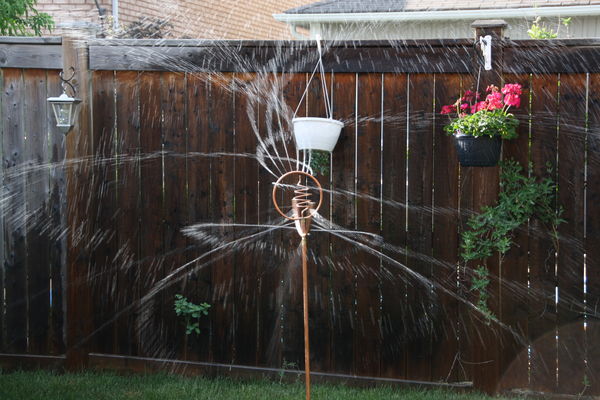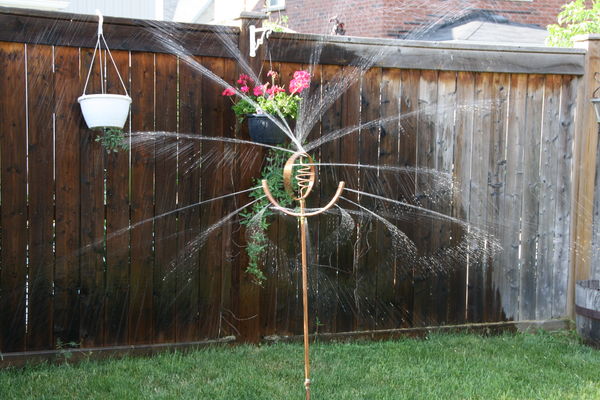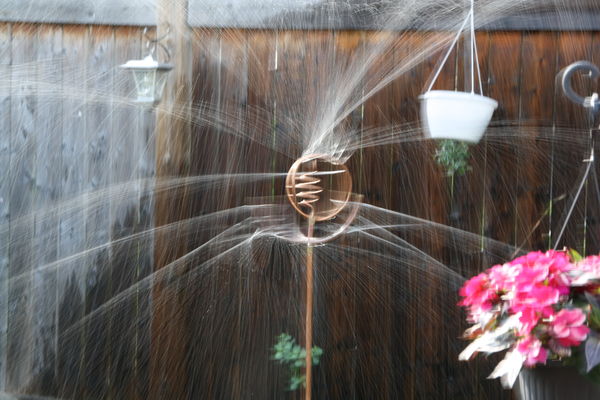Confused? Long exposures not working out for me.
Feb 16, 2015 19:28:44 #
jerryc41 wrote:
Very nice - without an ND filter.
Thanks, but compared to other examples that have been posted they look like snapshots which I guess basically they are; handheld and no filter. I was just out riding my motorbike that day and took my camera with me and ran across this park and decided to take a break and snapped a few pictures. I have filters and tripods but don't usually carry them with me; I should be more disciplined. :wink:
Feb 16, 2015 19:36:48 #
Feb 16, 2015 21:48:29 #
machia wrote:
can a polarizing filter be used in conjunction with a small aperture and low ISO to obtain the shot?
You should go back and pay attention to what Gene wrote about NOT using a too small aperture
Feb 17, 2015 03:15:41 #
SteveC_ wrote:
I have a question that hopefully some of you more ... (show quote)
I practice with a water sprinkler. I put my Camera to TV setting and start at about 1/15 sec. and then change the settings so the water turns milky or you can speed it up until you freeze the water droplets. I don't use any filters.Posting pics.
Feb 17, 2015 05:14:14 #
SteveC_ wrote:
So from my understanding f/22 will washout the photo but a lower f/stop helps the photo a great deal. Plus using a ND 32/64 or 400 will help accomplish the results that I'm looking for. Am I on the right track here?
No, if your exposure is in balance at F22 it will be properly exposed, not washed out. I think you need to "own" the relationship between shutter speed, aperture and ISO.
http://improvephotography.com/photography-basics/aperture-shutter-speed-and-iso/
http://www.exposureguide.com/exposure.htm
You can go out and buy a book, but with all of the good material on the internet, you probably don't need to.
An image that is properly exposed with the following settings - F22, ISO 100, 1/60 sec, will be exposed EXACTLY the same as F8, ISO 100 and 1/500 sec. Notice that I changed the aperture by 3 stops (to let in more light), and compensated by changing the shutter speed 3 stops (to let in less light) - three stops more light minus three stops less light equals same effective exposure. The difference is that the depth of field will be shallower with the F8 exposure, but what is in focus will be much sharper.
http://www.bobatkins.com/photography/technical/diffraction.html
http://www.cambridgeincolour.com/tutorials/diffraction-photography.htm
What someone has suggested, to shoot at F22 and "deal with it later" is a terrible idea. If diffraction from too small an aperture softens the image - aka reduces the lens' resolving power - you are not going to record fine detail - period. You cannot add back this "detail" in post processing. All you can do is manipulate the local contrast and find edges using some sharpening methods to increase the contrast, which will trick the eye into seeing a "sharper" image, but fine detail will be lost forever. If you really care about your images, you will avoid shooting at F16, and never ever shoot at F22.
http://www.aguntherphotography.com/tutorial/diffraction-limits-of-resolution.html
http://luminous-landscape.com/understanding-lens-diffraction/
If you want to reply, then register here. Registration is free and your account is created instantly, so you can post right away.







